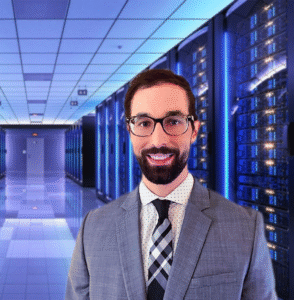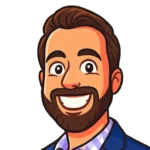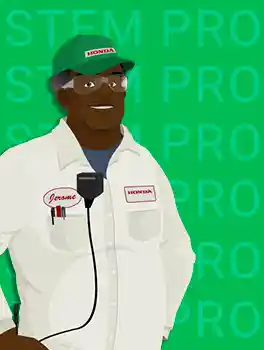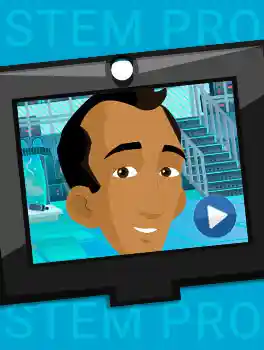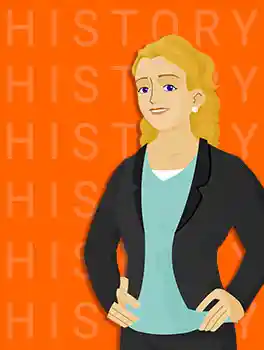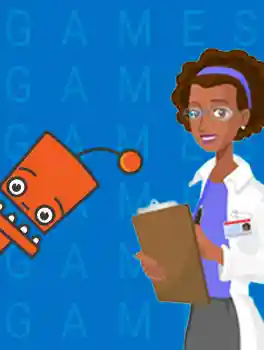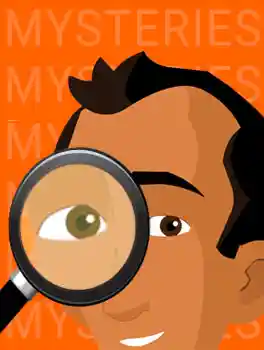Edheads.org
Welcome to STEM Stars Powered by edheads.org—where you get an inside look at careers in science, tech, engineering and math. Today’s guest is enterprise architect, Josh Yakunich.
Josh Yakunich
My name is Josh Yakunich and I work as an enterprise architect, which is an I.T. position, at the Ohio State University Wexner Medical Center. It’s a strategic leadership position at the medical center. And what it does is it looks at the goals and strategies that the business has at its highest levels and finds ways that technology can bridge any gaps for the organization in order to meet those goals. The the importance of a role like an enterprise architect, where we act as this kind of bridge or this glue between the business side of our organization and the technology side of our organization is kind of unique.
If there’s a business problem that we are trying to solve or a business goal that we’re trying to meet, it should be a foregone conclusion that the technology side seeks those goals from the business—like literally speaks to those stakeholders and says, “I don’t want you to give me a solution. I want you to tell me what the problem is.”
And then I take that. And once we agree, then I go back and work, you know, leverage my expertize and work with my subject matter experts in I.T. to formulate a recommendation on a potential solution or a series of options when it comes to solutions. The coolest part about my job, well, I would say one is working for the Ohio State University.
It’s such a great thing to work for an organization that has so many facets to what it does and it can cover almost any industry when you compare it, when you combine the university with the medical center right specifically work. It really opens so many doors and just allows you to be a part of so many different, different things.
And from a technology perspective, you know, we’re looking at things right now like how to integrate things like augmented and virtual reality into patient care. So like using some sort of an AR or a VR headset to be able to facilitate a surgical procedures. So getting to do things like that is really, really cool, especially in the healthcare space, because not only are you getting to to work with the technology, but you’re also getting to hopefully contribute to, you know, better outcomes for our community and our and our citizens.
It’s a pretty unique experience. What got me into into my STEM career was actually it was, it was, it was interest, but also a bit of luck. When I was in college, I actually my degree is, is not in technology. My degree is actually in geography with a specialization in atmospheric sciences. So to translate what that means, that is a weatherman.
That’s what that’s what my degree is in. And when I when I graduated college, there were certain circumstances—life circumstances—that dictated that I, you know, I needed to find a job pretty quickly after college. And I happened to have you know, I happen to have some some previous work experience with I worked at Cosi and I happened to be in there and ran into the I.T. director.
And we started talking about me needing a job. And, you know, I essentially the ball got rolling on that conversation and she was like, “hey, I know you’re a really good worker. I know you’re smart. I know you can you can do this. Would you want a job in it?” And I hadn’t really given it a whole lot of thought at the time or before that.
But once I did, it immediately piqued my interest. And once I started working in that job and I got the opportunity to to to be a part of something like that. And it was entry level. Like I had to learn everything from the ground up, but my, my enthusiasm just went through the roof. I was so excited about doing what I was doing and learning the things that I was learning it.
It made the job easy because I truly was enjoying what I was doing. Let’s say you’re good at what you do. That natural ability to to to learn and grow and therefore potentially move up can only take you so far. And if you’re not an advocate for yourself, it’s really difficult to to, in my experience, to continue to grow beyond hitting the stagnation points.
You really have to have to market yourself. You really have to talk to people. You have to express and communicate the things that you’re looking for so that you can find the right people that can enable you to do that. Just sitting by and just kind of letting it happen. I think in almost in most cases, you’ll rarely get to where you want to go just by doing that, even if you do a good job, that that idea of being your own best salesman or even just showing that you put forth the effort to do it, even if it’s awkward, I think for the right in the right places and the people that
see that that that’s going to—people are going to remember that. One of my one of my biggest blunders in my career, I was learning I was learning about our our email system. I was editing a configuration file or I’d meant to be editing this configuration file and happened to, you know, as I was was navigating around because sometimes natural touch keyboard.
I put some some extraneous characters in this configuration file and and I just totally screwed it up and brought the entire email system down. And it took—I took much longer than it should have to in order to recover from that. I look back on it and it’s funny, but at the at the time I was mortified.
I was like, “oh my God. Like, I’m, I’m new to this job…. is this a career limiting event for me?” And luckily, I worked in a place that was very supportive of us, that was very supportive of, you know, of our of our team. And really started to know that that the culture that they bred there was was really one of, we know you’re going to make mistakes.
Let’s just learn from that mistake and try not to make it again. What a what a high schooler or a person in college should do to prepare for a job like mine—if I’m leaning into my history, it’s not so much about the technology side of what I do. I think the biggest the biggest contributor to my success was inquisitiveness, curiosity.
Early on when I started my first job, like, I was so green, I was so inexperienced. If someone was working on something, “hey, can you pull me aside and show me this? I want to. I want to I want to see if you’re doing, you know, even if I don’t understand it completely, just let’s let’s start start doing it.”
I think the the biggest thing that I can say for people is to try to develop that drive and curiosity, to push yourself earlier on in your career, because it’s going to pay dividends as you move forward.

